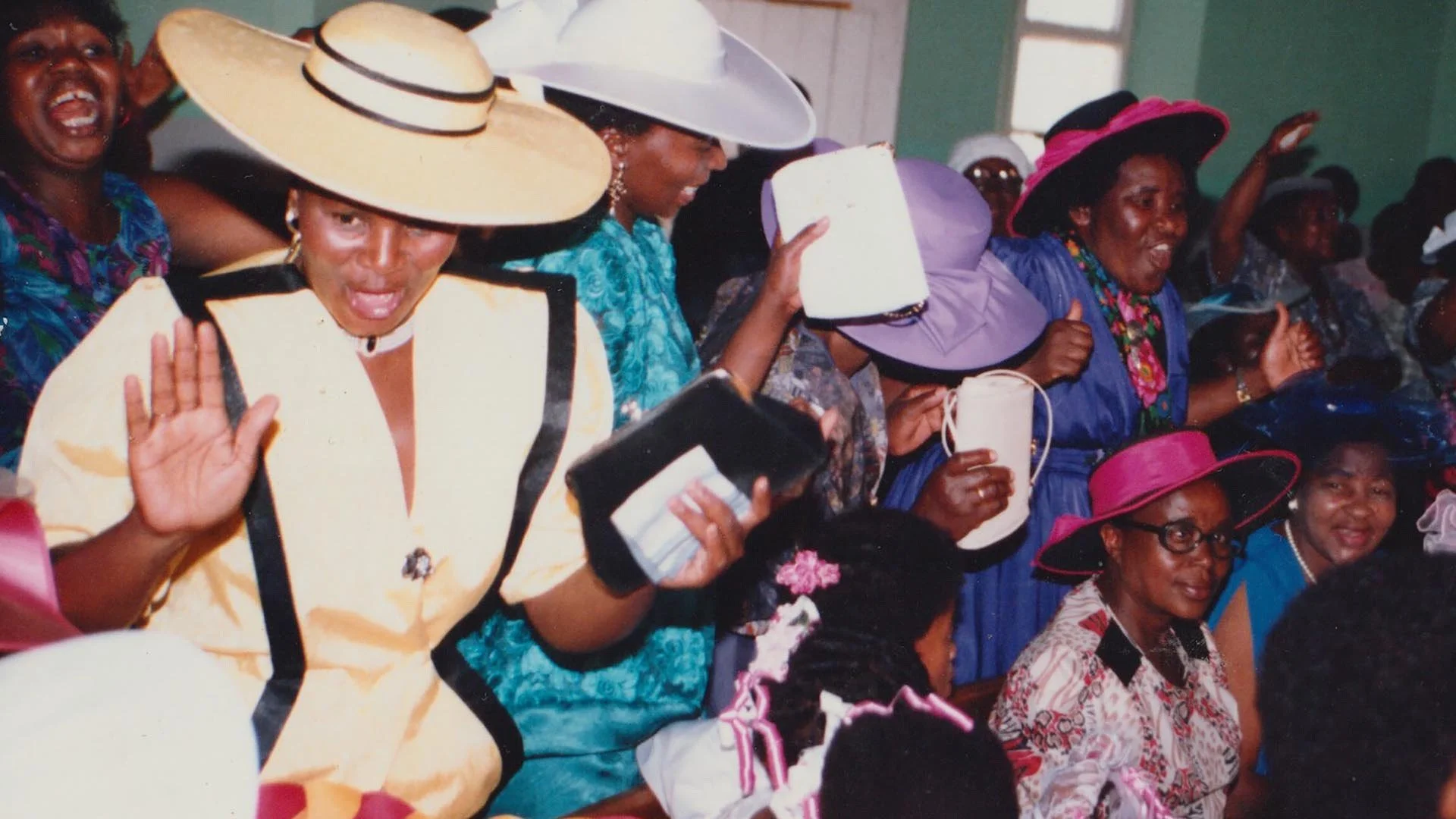Milisuthando
An award-winning feature debut in which filmmaker Milisuthando Bongela surveys nearly forty years of life in South Africa.
Image courtesy of Tape Collective.
From whatever angle you approach it, this is the most personal of films and that includes its title. In making her first film, a feature-length documentary, Milisuthando Bongela named it after herself and indeed it finds her looking back on her own life. She was born in 1985 and grew up in South Africa in East London in the former Republic of Transkei. Her viewpoint is thus that of one of the Xhosa people living through a period when apartheid was a dominant force in the country and the indigenous suffered accordingly. Yet her own experience of the situation was shaped by spending her early days in the state of Transkei which existed from 1976 to 1994 having been established as a black independent region under apartheid. It meant that as a young child she had the protection of living only among her own people so it was only subsequently that she had to contend directly with the racism that has come to mark the land of her birth. She would consequently have to reassess her outlook on awakening to what apartheid really meant in terms of the harsh political impact that it had on South Africa generally and its role in sustaining white supremacy.
As for Milisuthando's family, her grandmother, Somikazi, is a prominent presence in the film while Milisuthando herself was clearly influenced by the interests of her parents – her mother was a teacher who conducted music and her father a writer, composer and musician. In this atmospheric film the music score plays a key role and when Milisuthando went to university she took on a whole range of subjects including journalism, history, philosophy, sociology and arts. In her twenties her political concerns developed but she is also a poet and all of this contributes to Milisuthando being the kind of film that it is.
Although not planned that way from the start, this essay film has become a work of five sections lasting over two hours. Throughout its length the film offers a blend of recovered images and of newly shot material but the style and tone of it vary. The first segment is an informal evocation of her memories of Transkei and it incorporates scenes of Xhosa rituals which will be further expanded. The traditions of her people fascinate her, but she is all too aware of the irony when her beloved grandmother, far from sharing Milisuthando’s endorsement of him, totally rebuts Nelson Mandela and his vision of integration – the lost dream of a rainbow nation as it is described here.
The third section includes memorable footage of black youngsters describing their thoughts on entering the white school system when that became possible in 1990, but Milisuthando is far removed from the kind of documentary on apartheid that focuses on such matters as the Soweto uprising. In many ways, not least in the film’s fourth section, Bongela chooses to look inward. In particular there is a talk with one of her best friends, Marion Isaacs who became the producer of this film, in which Milisuthando is keen to examine the extent to which the racial divide inevitably results in issues of colour, class and gender being buried in your character even if one would prefer them not to be. A comparable discussion with another friend, the writer and artist Bettina Malcomess, leads to her acknowledging how easy it is for a white person not to see her own power and privilege. To concentrate on the thoughts being expressed here Bongela most unusually opts visually for what is virtually a black screen but rather bizarrely then interrupts it briefly from time to time in order to show images of the people.
Ultimately it is the very individuality of Milisuthando that one comes to regard as both its quality and its liability. Not surprisingly there are times when the film’s length (128 minutes) feels rather self-indulgent and stylised visual touches incorporated will please some more than others. More importantly, perhaps, the filmmaker is so familiar with the world that she is showing us that some sequences – including those featuring ancient rituals – require rather more explanation than they get and, if the music used – existing pieces as well as an original score – is well-judged, the inclusion of poems spoken is less effective. The film’s final segment incorporates what should be a moving funeral but it proves more notable for prominently quoting a poem entitled ‘Scapegoats’. Scrupulously the film’s credits acknowledge inserting phrases from other poems, yet just what it all means never became clear to me. The film can be thought of as consisting in part of poetic meditations and some images recur from one section to another, but even though the film is heartfelt it does not always speak as directly and clearly as one would hope. Nevertheless, it has the value of presenting South Africa's recent history from an unfamiliar viewpoint and, whatever else one may say about it, this is a film with a voice of its own.
MANSEL STIMPSON
Featuring: Milisuthando Bongela, Marion Isaacs, Bettina Malcomess, Somikazi,Victoria Ntikinca, Jessica Doucha.
Dir Milisuthando Bongela, Pro Marion Isaacs, Written by Milisuthando Bongela, Ph Hankyeol Lee, Ed Hankyeol Lee, Music Neo Muyanga and Msaki (Asanda Lusaseni).
Early Hours/Viso Producciones/Multitude Films/Field of Vision/Chicken & Egg Pictures/Cinereach etc.-Tape Collective.
128 mins. South Africa/Colombia/USA/UK/The Netherlands/Canada. 2023. UK Rel: 18 October 2024. Cert. 12A.


